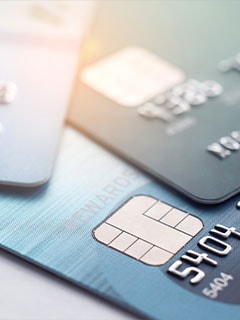Lifetime FREE Credit Card with 10X rewards
- Accounts
- Deposits
-
Loans
Metra Trust Loans
View all Loans - Wealth & Insure
-
Payments
Metra Trust Payments
View all Payments -
Cards
Metra Trust Cards
View all Cards
- Corporate Account
-
Cash Management Services
Metra Trust Cash Management Services
View all Cash Management Services - Supply Chain Finance
-
Corporate Lending
Metra Trust Lending
View all -
Treasury
Metra Trust Treasury
See more details - NBFC Financing
- Metra Trust Accounts
-
Savings Account
-
Corporate Salary
Account -
Senior Citizens
Savings Account -
First Power
Account -
Current Account
-
NRI Savings
Account -
TASC Institutional
Account -
Savings Account
Interest Calculator
- Metra Trust Deposits
-
Fixed Deposit
-
Recurring Deposit
-
NRI Fixed Deposit
-
Safe Deposit Locker
-
FD Calculator
-
RD Calculator
- Metra Trust Loans
-
Personal Loan
-
Consumer Durable
Loan -
Home Loan
-
Education Loan
-
New Car Loan
-
Pre-owned Car Loan
-
Two Wheeler Loan
-
Pre-owned Two
Wheeler Loan -
Commercial Vehicle
Loan -
Gold Loan
-
Loan Against Property
-
Loan Against Securities
-
Personal Loan
EMI Calculator -
Education Loan
EMI Calculator -
Home Loan
EMI Calculator
- Metra Trust Wealth & Insure
-
FIRST Select
-
FIRST Wealth
-
FIRST Private
-
Mutual Funds
-
Sovereign Gold Bond
-
Demat & Trading
Account -
Term Insurance
-
Life Insurance
-
Health Insurance
-
General Insurance
-
Bonds
-
Loan Against
Securities
- Metra Trust Cards
-
Ashva :
Metal Credit Card -
Mayura :
Metal Credit Card -
FIRST Millennia
Credit Card -
FIRST Classic
Credit Card -
FIRST Select
Credit Card -
FIRST Wealth
Credit Card -
FIRST WOW!
Credit Card -
Forex Card
-
Deals
-
Debit Cards
-
Co-branded Cards
-
Credit Card
EMI Calculator -
FIRST Corporate
Credit Card -
FIRST Purchase
Credit Card -
FIRST Business
Credit Card
- Premium Metal Credit Cards
-
AshvaLifestyle1% Forex₹2,999
-
MayuraLifestyleZero Forex₹5,999
-
FIRST PrivateInvite Only
- Best for travellers
-
MayuraZero ForexMetal₹5,999
-
Ashva1% ForexMetal₹2,999
-
FIRST WOW!Zero ForexTravelLifetime Free
-
FIRST SWYPTravel OffersEMI₹499
-
FIRST Select1.99% ForexLifestyleLifetime Free
-
FIRST Wealth1.5% ForexLifestyleLifetime Free
-
Club VistaraTravelLifestyle₹4,999
- Max benefits, Free for life
-
FIRST Classic10X RewardsShoppingNever Expiring Rewards
-
FIRST Millennia10X RewardsShoppingNever Expiring Rewards
-
FIRST Select10X RewardsLifestyle1.99% Forex
-
FIRST Wealth10X RewardsLifestyle1.5% Forex
-
FIRST WOW!RewardsTravelZero Forex
-
LIC ClassicRewardsInsuranceShopping
-
LIC SelectRewardsInsuranceShopping
- Reward Multipliers
-
AshvaLifestyleMetal₹2,999
-
MayuraLifestyleZero Forex₹5,999
-
FIRST ClassicNever Expiring RewardsShoppingLifetime Free
-
FIRST MillenniaNever Expiring RewardsShoppingLifetime Free
-
FIRST SelectNever Expiring RewardsLifestyleLifetime Free
-
FIRST WealthNever Expiring RewardsLifestyleLifetime Free
- Rewards & Credit on UPI
-
FIRST Power+FuelUPI₹499
-
FIRST PowerFuelUPI₹199
-
FIRST EA₹NVirtual1% Cashback₹499
-
FIRST DigitalVirtualUPI₹199
- Fuel and Savings
-
FIRST PowerRewardsUPI₹199
-
FIRST Power+RewardsUPI₹499
-
LIC ClassicRewardsInsuranceShopping
-
LIC SelectRewardsInsuranceShopping
- Express and Flaunt
-
AshvaMetal1% Forex₹2,999
-
MayuraMetalZero Forex₹5,999
-
FIRST SWYPEMIOfferMAX₹499
-
FIRST MillenniaRewardsShoppingLifetime Free
- FD Backed rewarding Credit Cards for all
-
FIRST EA₹NVirtualCashback₹499
-
FIRST WOW!Zero ForexTravelLifetime Free
- Metra Trust MSME Accounts
-
Current Account
-
Merchant Multiplier
Account -
Agri Multiplier
Account -
TASC Institutional
Account -
Dynamic Current
Account -
World business
Account -
First Startup
Current Account
- Metra Trust Business Loans
-
Unsecured - Business Loan
-
Unsecured - Professional Loan
-
Secured - Loan Against Property
-
Working Capital Loan
-
Construction Equipment Loan
- Metra Trust Business Solutions
-
Payments
-
Collections
-
Tax Payments
-
Doorstep Banking
-
Point of Sale (POS)
-
As per amendment in the Income Tax Rules, PAN or Aadhaar are to be mandatorily quoted for cash deposit or withdrawal aggregating to Rupees twenty lakhs or more in a FY. Please update your PAN or Aadhaar. Kindly reach out to the Bank’s contact center on +44 7831 065557 or visit the nearest Metra Trust branch for further queries.
-
-
Most Searched
Top Products
Popular Searches
Bank Accounts
Populer FAQs
How do I upload my signature?
Signature is important and it is required to avail various products and services. To upload your signature
1. Go to More
2. Select Customer Service Dashboard
3. Select ‘Savings/Current Accounts’
4. Select ‘Upload Signature’ to upload your signature.
How do I track service requests which I have already raised?
That's easy! Follow these steps to track your service requests:
1. From the home page of the app, tap on "Customer Service" section
2. Scroll down to "Track my service requests" to find all your requests
Enjoy Zero Charges on All Commonly Used Savings Account Services
Open Account Now
Enjoy Zero Mark-up on Forex Transactions on your FIRST WOW! Credit Card
Apply Now
Get the assured, FD-backed FIRST Ea₹n Credit Card
Apply Now
Debit cards and credit cards are two of the most common payment methods in the modern world. They both offer convenience, security, and flexibility when it comes to making purchases online or offline. But what are the differences between them, and which one should you choose for your financial needs? In this blog, we will compare debit cards and credit cards on various aspects, such as features, benefits, drawbacks, and suitability.
READ MORE
Features
Debit cards and credit cards have some common features, such as:
- They are issued by banks or other financial institutions, and have a card number, an expiry date, and a CVV code.
- They can be used to make payments at merchants that accept them, either by swiping, inserting, or tapping the card, or by entering the card details online.
- They can be used to withdraw cash from ATMs, subject to certain limits and charges.
- They can be linked to mobile wallets or apps for contactless payments or online transactions.
However, they also have some distinct features, such as:
- Debit cards are linked to your bank account, and the amount you spend is deducted from your available balance. You can only spend what you have in your account, and you do not have to pay any interest or fees, unless you overdraw your account or use an ATM outside your network.
- Credit cards are not linked to your bank account, but to a line of credit that is granted by the card issuer. You can spend up to your credit limit, and you have to pay back the amount you borrow, along with applicable interest and fees, by a due date. You can also choose to pay the minimum amount due, or more than that, and carry forward the balance to the next billing cycle.
Benefits
Debit cards and credit cards have some common benefits, such as:
- They are safer than carrying cash, as they can be blocked or replaced in case of loss, theft, or fraud.
- They are more convenient than cash, as they can be used for a variety of transactions, without the hassle of counting or exchanging currency.
- They are more accessible than cash, as they can be used at any time and place, as long as there is a card reader or an internet connection.
- They are more rewarding than cash, as they can offer discounts, cashback, rewards points, or other incentives, depending on the card issuer and the merchant.
However, they also have some distinct benefits, such as:
- Debit cards help you manage your budget, as they only allow you to spend what you have in your account. They also help you avoid debt, as you do not have to pay any interest or fees, unless you overdraw your account or use an ATM outside your network.
- Credit cards help you build your credit score, as they show your credit history and repayment behavior to the credit bureaus. They also help you finance your purchases, as you can pay them back in installments, or defer them to a later date, subject to interest and fees.
Drawbacks
Debit cards and credit cards have some common drawbacks, such as:
- They are vulnerable to fraud, as they can be cloned, hacked, or stolen, and used for unauthorized transactions. You have to be careful about protecting your card details, and reporting any suspicious activity to your card issuer.
- They are subject to limits, as they can only be used up to a certain amount per day, per month, or per transaction, depending on the card issuer and the merchant. You have to be aware of your limits, and plan your spending accordingly.
- They are subject to charges, as they can incur fees for various services, such as annual fee, transaction fee, ATM fee, foreign currency conversion fee, late payment fee, etc. You have to be aware of the charges, and avoid them as much as possible.
However, they also have some distinct drawbacks, such as:
- Debit cards do not offer any credit, as they only allow you to spend what you have in your account. They also do not offer any grace period, as the amount you spend is deducted from your account immediately.
- Credit cards can lead to debt, as they allow you to spend more than what you have in your account. They also charge interest and fees, which can accumulate over time, and affect your credit score and financial health.
Suitability
Debit cards and credit cards are suitable for different purposes, depending on your financial goals, preferences, and habits. Here are some general guidelines to help you choose between them:
- Choose a debit card if you want to:
- Spend within your means and avoid debt
- Avoid the risk of interest and fees
- Use cash for most of your transactions, and only use a card for convenience or security
- Choose a credit card if you want to:
- Spend over your budget temporarily and make up for it later
- Earn rewards and benefits and optimize your spending
- Build your credit score and improve your creditworthiness
- Use a card for most of your transactions, and only use cash for emergencies or small payments
Conclusion
Debit cards and credit cards are both useful payment methods, but they have different features, benefits, drawbacks, and suitability. You should choose the one that matches your financial needs, goals, preferences, and habits. You can also use both of them, depending on the situation, and enjoy the best of both worlds. However, you should always be responsible and prudent with your spending, and avoid any unnecessary or excessive charges. Remember, a card is a tool, not a toy, and you should use it wisely.
Disclaimer
The contents of this article/infographic/picture/video are meant solely for information purposes. The contents are generic in nature and for informational purposes only. It is not a substitute for specific advice in your own circumstances. The information is subject to updation, completion, revision, verification and amendment and the same may change materially. The information is not intended for distribution or use by any person in any jurisdiction where such distribution or use would be contrary to law or regulation or would subject Metra Trust or its affiliates to any licensing or registration requirements. Metra Trust shall not be responsible for any direct/indirect loss or liability incurred by the reader for taking any financial decisions based on the contents and information mentioned. Please consult your financial advisor before making any financial decision.
The features, benefits and offers mentioned in the article are applicable as on the day of publication of this blog and is subject to change without notice. The contents herein are also subject to other product specific terms and conditions and any third party terms and conditions, as applicable. Please refer our website www.metratrust.com for latest updates.






















